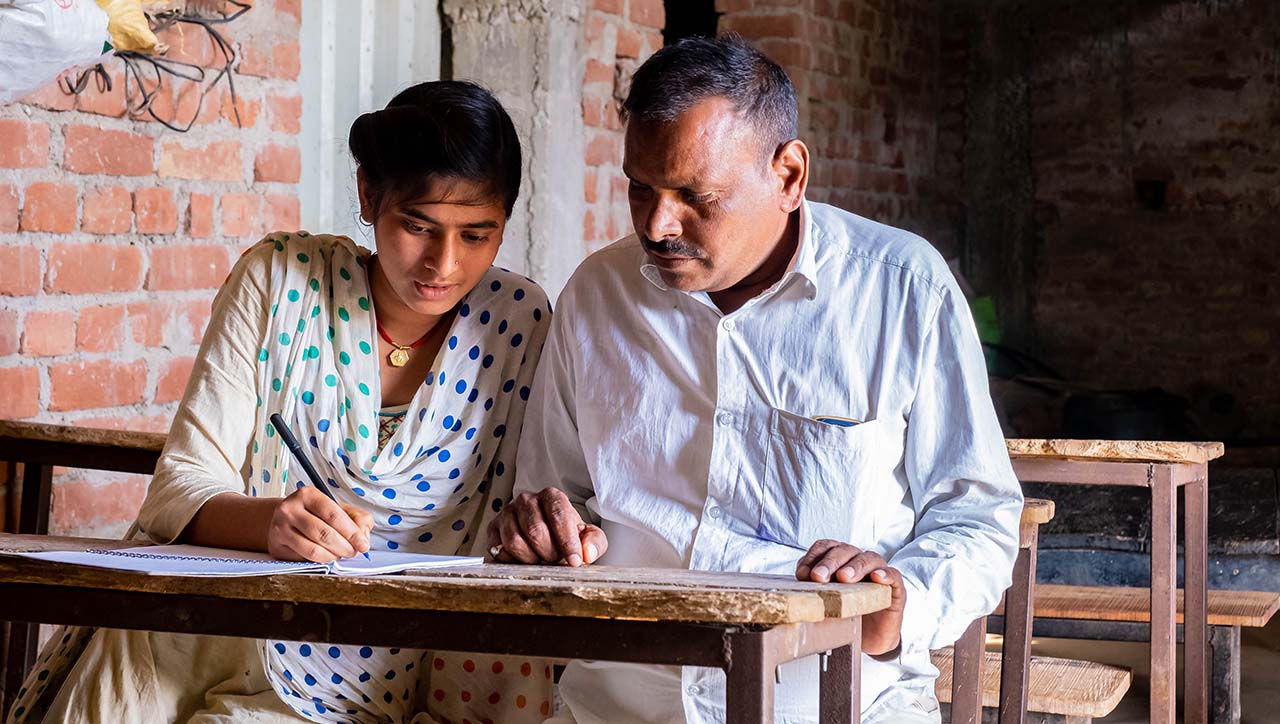International Youth Day – 2022

What do you think, they think about marriage?
An attempt to look into expectations across generations on marriage.
A contribution towards International Youth Day 2022
Intergenerational solidarity: creating a world for all ages
International Youth Day is celebrated globally on 12th August to recognize the role of youth in tackling developmental issues in a sustained manner. This year – 2022, the theme for the day is ‘intergenerational solidarity: creating a world for all ages. The theme calls for the participation of all generations to achieve the Sustainable Development Goals (SDG). UN recognizes solidarity across generations is key to developmental achievements.
 There are many factors which create a disconnect between generations. Age, education, cultural shift, distance, relations, and policies are a few of them. To ensure no one is left behind, the connect across generations is essential. While we emphasise the requirement of targeted actions to strengthen the connection.
between generations; it is equally essential to understand and accept the barriers and the expectational gaps existing across generations. Once you know the gap; that will ease the efforts to build the connections.
There are many factors which create a disconnect between generations. Age, education, cultural shift, distance, relations, and policies are a few of them. To ensure no one is left behind, the connect across generations is essential. While we emphasise the requirement of targeted actions to strengthen the connection.
between generations; it is equally essential to understand and accept the barriers and the expectational gaps existing across generations. Once you know the gap; that will ease the efforts to build the connections.
PCI India undertook a quick check survey to explore the expectations of people across generations on the topic – marriage. Marriage is a significant event in our society and uniquely brings people across generations to one place at one point in time. Marriage is an institution; being a constant across generations with different roles and responsibilities. Hence, we thought of looking at people’s perceptions about other generations regarding marriage. To weave it into the concept of ‘intergenerational solidarity’ we looked at topics related to expressing sentiments, agreement in opinions, and receiving support.
A form-based online survey was shared with the organizational staff and their networks in India. Over a span of 7 days, 124 responses were received from respondents of ages above 10 years. Besides some basic questions and consent, a total of 7 questions were administered to explore the perception of all generations on the topic of marriage. These questions had a flavour of social norms since they looked at only the perception of our respondents rather than asking them to share their own experiences.
Among 123 respondents; 43.4% were in the 21-30 years age group, 28.7% were of 31-40 years and 21.3% were in the age group 41-50 years. Responses from such varied age groups enabled us to know the perception of people from different generations while we asked each of these age group about their grandparents, parents, and peers. More than half of the respondents were currently married, based in a city, and working in the private sector.
For our first investigation on the perception of the young people – age upto 30 years; we find 75% of youth, irrespective of their sex perceive that people are most likely to prefer ‘self’ to be the first person to talk/discuss marriage. People tend to introspect about such issues before talking to others. For this age group, 47% of respondents perceive that people talk to friends, 25% parents and 7% talk to grandparents about marriage.
When asked about their perception about people valuing parents’ or grandparents’ wishes more than their own for marriage plans, only 9% perceive that the wishes of parents and grandparents are valued more than self. This age group perceives that during any marriage-related crisis, 66% of people receive support from friends and 30% and 15% receive support from parents and grandparents, respectively.
62% of respondents perceive that people receive support from friends and 20% perceive it from parents despite deviating from the wishes of parents and grandparents for marriage. However, 46% of young respondents perceive that such events do call for negative sanctions from parents. More than 80% of parents and grandparents definitely expect people to get married.
It was a very small and quick online survey; however, the results give a good sense of perception of individuals from different generations, when it comes to marriage. More than 81% of the respondents were from the urban spaces and perceive that ‘self’ and ‘friends’ are most likely the ‘go-to’ person for discussions related to such a significant societal life event. The space and value for parents and grandparents was low.
Social and gender norms keep passing from generation to generation, without any structured classroom lesson, the perception and expectations of actions, responses and fear of negative sanctions also continue to be passed on to next generations silently. The survey informs the conflict of the expectations and fears of sanctions as there is somewhere an inter-generational gap due to the pressure of being aligned to age-old societal norms like marriage.
Some of the recommendations for inter-generational engagement:
- Essential family mealtime together – for all members to eat together and share their day’s experiences and concerns
- Post mealtime together – it’s essential for inter-generational casual conversation time post-meal. This can be in the form of a night walk as well. These small 1:1 meeting further gives opportunities for understanding each other.
- Community level family events – mother & daughter meetings/events. ‘Maa Beti Sammelan’ is a kind of community-based discussion format, where mothers and daughters discuss and debate on topics of common interest; with a curtain in between the two groups. In this way, they can’t see each other but can listen to each other. Thus, there can be an open discussion and sharing of feelings and expectations.
- Role rolls – there could be some days when family members can exchange roles. These can be in household chores like cleaning, cooking, helping elders or helping children in their activities.
- Family vacations – Family vacations may not be luxurious, but it’s a time out and away from home. This allows members to interact with each other in a different context and learn, and engage more with each other.
- Special time with parents & grandparents – Families or people with parents and grandparents away from them, should schedule periodic meetings with them. this can be daily, weekly or monthly. This can be a mix of virtual and in-person.
- Societal events – events like marriage or mourning are also an occasion for inter-generational engagement. All family members must attend such occasions, rather than avoiding them in the name of busyness.
- Life skills – life skills training is essential for all starting from 10 years old. Personal skills like sympathy, empathy and interpersonal communication is crucial for all to connect, across generations.
Inter-generational solidarity should not stop only with the observation of international youth day. it should continue every day and every year. Young people do have the energy and the ideas for leading all the events and remain connect across the generations.
We are grateful to all respondents for their time and valuable response to this interesting topic. PCI team presented a snippet of the survey result here and would come back in a series to share other interesting findings from this very interesting survey.
Thoughts shared by:
Sushmita- Director Gender and Adolescent Girls
Pooja Kini – Manager – Research and Knowledge Management

